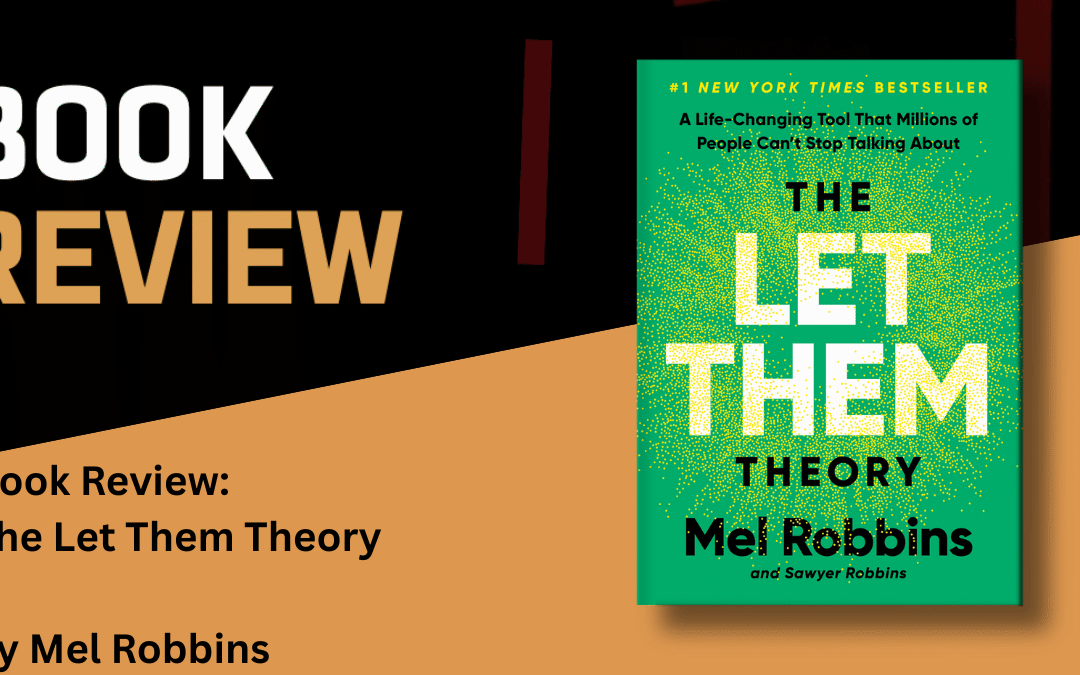Mel Robbins is not your typical self-help author. In The Let Them Theory, she does not preach positivity. She invites us to stop managing other people’s opinions. Her advice is simple. If someone doubts you, let them. If someone misunderstands you, let them. That’s the theory. Let them.
It sounds too easy. Almost lazy. But that is the point. We spend too much time trying to control what others think. We adjust. We explain. We overthink. And we still lose. Robbins gives us permission to stop. And that is where her message becomes powerful.
I did not expect to like this book. I thought it would be another cheerleader-style pep talk. But The Let Them Theory is not about hype. It is about boundaries. Robbins offers a refreshing argument. Letting people believe what they want does not mean you are weak. It means you are clear about who you are.
That is a shift in mindset. Most books tell us to speak up and defend ourselves. This one says silence can be stronger. Robbins teaches that peace comes from detachment. Not from being right.
The best part? She gives examples. Real stories. People who walked away from drama and felt lighter. People who chose not to argue and gained freedom. These stories make the theory come alive.
Letting go is not giving up. That is what stuck with me. It is choosing where your energy goes. Most of us waste our time trying to fix things that do not need fixing. Robbins calls that emotional noise. And her solution is stunningly clear. Turn down the volume. Let them think what they want.
If you are a people pleaser, this book will shake you. In a good way. It challenges the idea that you must explain yourself to be understood. It reminds you that not everyone will like you. And that is okay.
There is also something deeply calming about the way Robbins writes. Her tone is friendly but firm. She does not yell at you to change your life. She nudges you. Gently but consistently. And before you know it, you are nodding along.
One chapter focuses on social media. It hit me hard. Robbins explains that trying to control your online image is a trap. You edit. You post. You wait for approval. But even if you do everything right, someone will still judge you. Let them.
Another part of the book tackles relationships. Friends who drift. Family members who disagree. Robbins says to stop chasing closure. Not every situation needs a resolution. Some people are meant to misunderstand you. Let them.
I appreciate that the book never feels cold. Robbins is not telling us to be indifferent. She is teaching us to care without collapsing. There is a quiet confidence in that. And it’s a message I think more people need to hear.
If you are looking for a book that teaches you to hustle, this is not it. The Let Them Theory is about stillness. About stepping back. It is not passive. It is precise. Robbins helps you recognize where your power is and where it is not.
Contrary to popular advice, you do not always need to fight harder. Sometimes, the strongest move is to walk away. Not with bitterness. But with peace. That is the lesson here. And it is one I will carry with me.
This book pairs well with others that challenge emotional habits. If you liked The Power of Now, you might appreciate the similar theme of presence. Robbins brings that same clarity into the everyday mess of human connection.
Her writing style is perfect for readers who want straight talk. No fluff. No filler. Just honest reflections that feel human. It’s not a deep academic study. And that is why it works. Robbins writes like a friend who has been there.
I also see a connection between this book and the lessons in Greed is God by Sadhguru. Both challenge the reader to rethink what they are chasing. In Robbins’ case, it is validation. In Sadhguru’s, it is material desire. Different paths, but the same deeper question: What really matters?
There is a small part of me that resisted this book at first. I thought letting people believe false things was weak. But the more I read, the more I saw strength in that choice. It is not about avoiding conflict. It is about choosing peace over performance.
You can explore more of my book reviews to see how this one compares. But if I had to sum it up in one line, I’d say: The Let Them Theory is not about them. It is about you.
It is a reminder that your worth is not up for debate. That your peace is not dependent on someone else’s approval. That your story does not need defending. And that sometimes, the most powerful thing you can say is nothing at all.
For more reflections and reviews, visit my journal or explore my full publication list.
Let them talk. Let them doubt. Let them walk away.
You stay grounded. That’s the real win.


